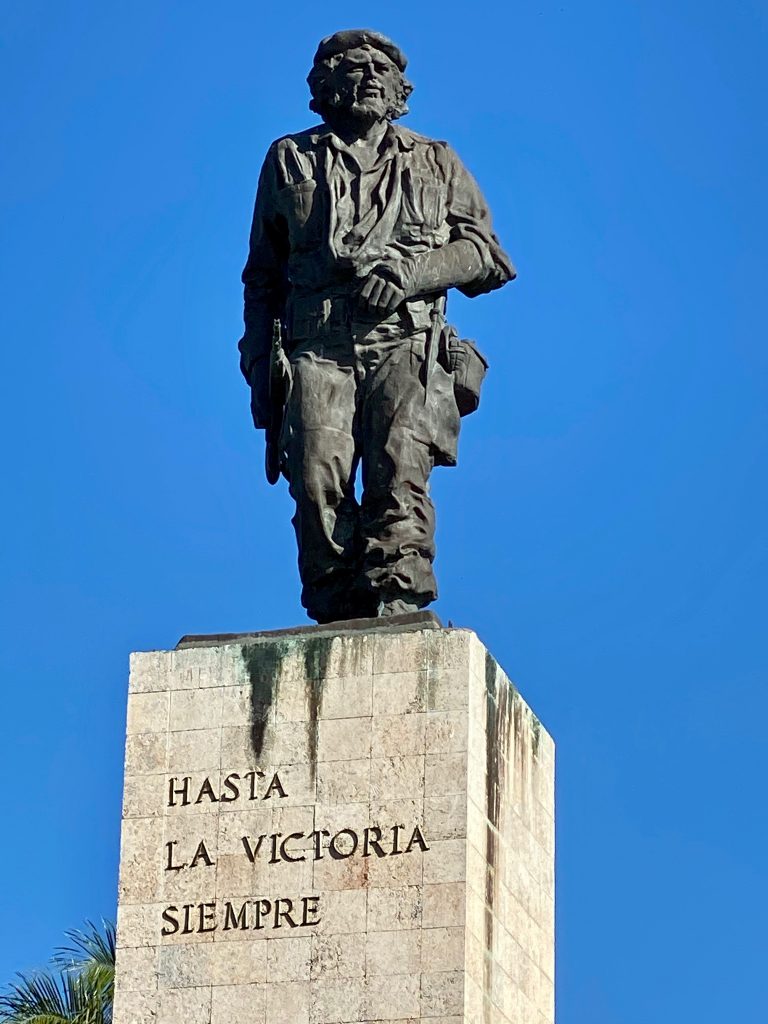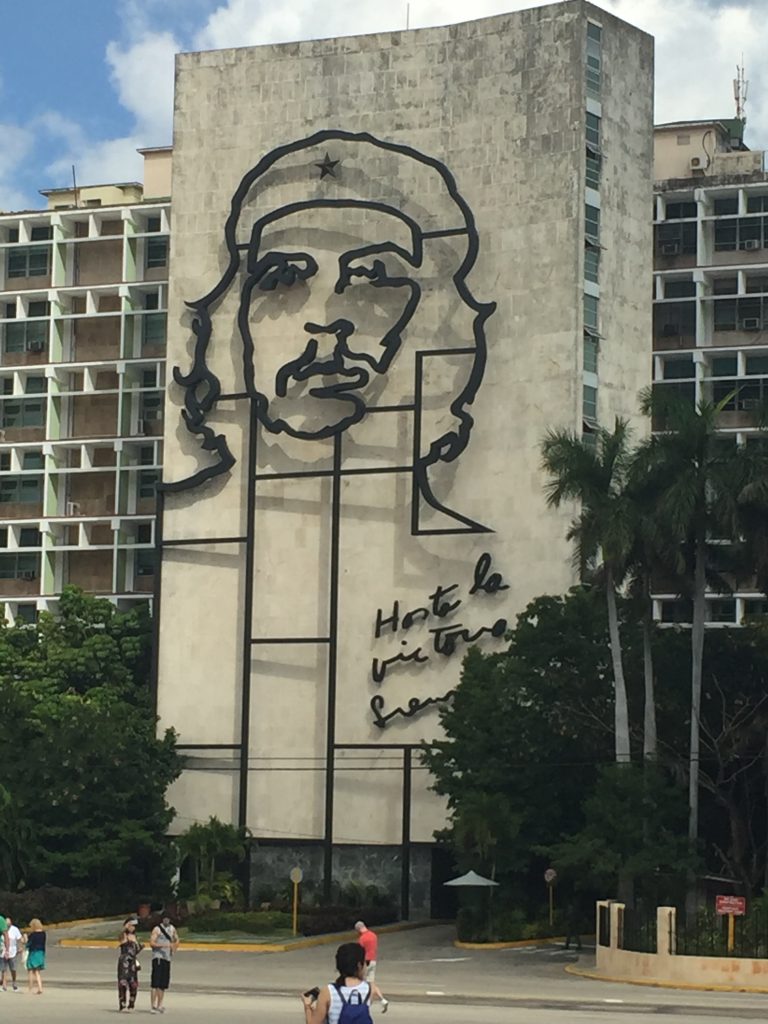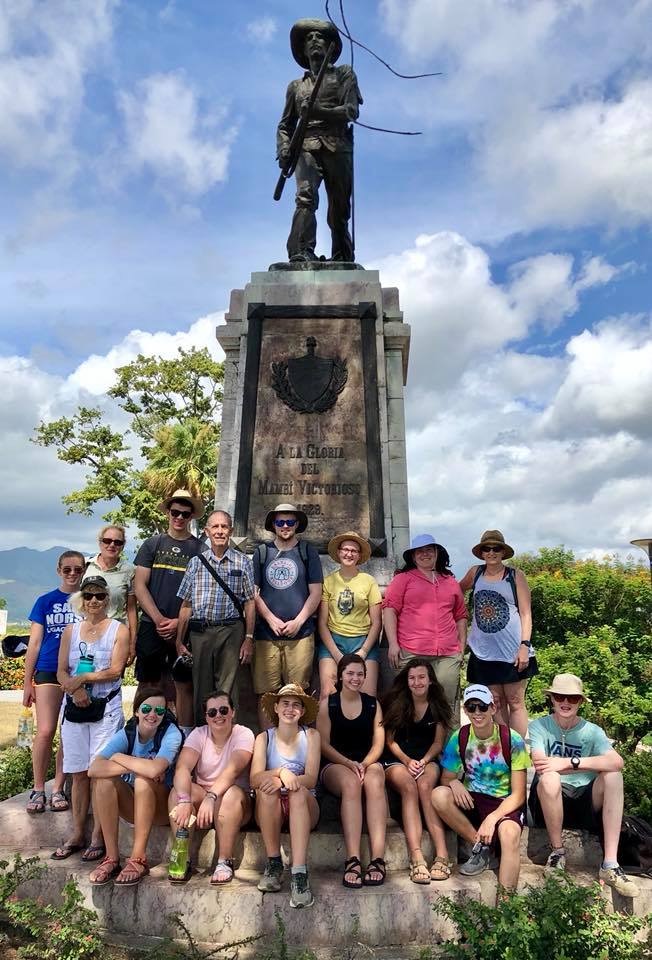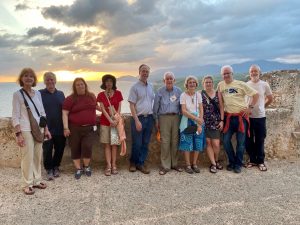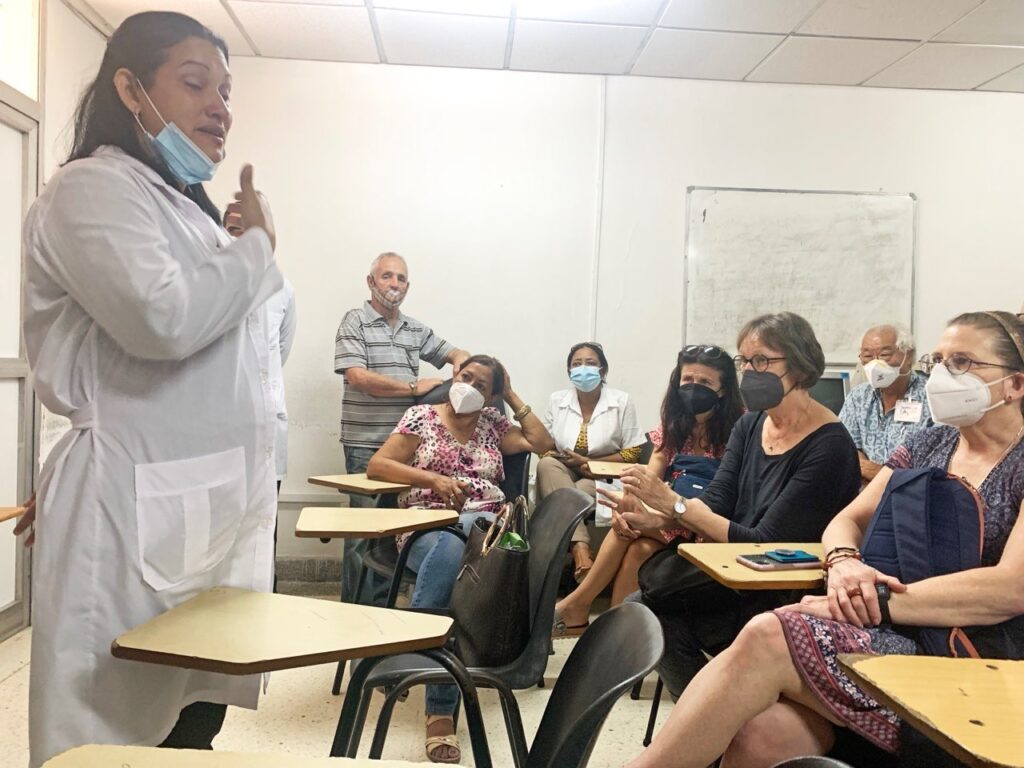
In February 2020, twenty-one members of the United Church of Christ visited Cuba. As part of an annual church trip to learn about this dynamic, controversial, and widely misunderstood nation, our group spent ten days in cultural immersion mode, learning about history, politics, and the joyful depths of the human spirit. With clouds of a global pandemic gathering, the trip concluded only a few weeks before Cuba would send all its tourists home. As the island and the world shut down, we wondered what would become of our Cuban friends? Would they be ok? Would they have what they need? Could they even survive? After three years we recently returned to hugs, tears, and a tenacious spirit still fully intact.
The past 36 months in Cuba have been without parallel. The sixty year old U.S. economic blockade of Cuba, further hardened by the Trump administration, and thus far only slightly loosened by President Biden, has left many Cubans reeling. During the height of the pandemic, over four hundred new restrictions were added to the sanctions regime. This heartless stranglehold, directly impacting the Cuban people, was strengthened at a moment of deepest and most desperate need.
In addition to U.S. sanctions, the pandemic brought Cuban tourism to a halt. Today, tourism is the largest sector of the Cuban economy, where private enterprise has flourished. This shut down accelerated an emerging energy, food, and medicine shortage which led to rolling black outs and widespread frustrations across the island. Indeed, these frustrations boiled over on July 11th, 2021 with protests and riots culminating in multiple arrests and much destruction of property in the capital city Havana. Add to these frustrations the imposition in January 2021 of a new single currency program, with severe inflation in its wake, and you have a Cuba under extreme duress.
If all this were not enough, on May 6th, 2022, the newly renovated luxury Hotel
Saratoga in Old Havana exploded due to a gas leak leaving 47 workers dead and 57 injured. Three oil storage tanks in Matanzas Province were lost when a tank was struck by lightning on August 5th, 2022. Sixteen firefighters were killed and over a hundred people injured in the explosion and ensuing, five-day fire. Things, it seemed, couldn’t get much worse. Yet, throughout it all, Cuba persevered.
During the pandemic, and against tremendous odds, the Cuban pharmaceutical industry was able to develop five Covid-19 vaccines, three of which were highly effective. All 11 million citizens were vaccinated and many lives spared. With a national health care system and more doctors per capita than any other nation in the world, Cuba fought 1.1 million cases of Covid, suffering a tragic, yet minimal 8,530 deaths.
Cuba is known for its free educational system, guaranteed up through graduate level studies at its universities. During the pandemic the Education Ministry was able to use national TV networks and cell phone systems to provide at home educational resources without the use of Zoom or other social media platforms denied by the U.S. embargo.While not an easy scenario, the education of Cuban children and adults continued.
Internationally, Cuba was able to send medical mission teams to fight the Covid
epidemic in nearly 40 countries across five continents. This is a tradition of human solidarity work which Cuban medics have engaged in for over 60 years. Today, Cuba has over 25,000 health care workers deployed across the globe. The doctors, nurses, and Cuban government are fairly compensated for this work, with the health of individuals, as well as international relationships, strengthened in the process.
In our recent ten day trip traveling across the island, we were privileged to speak with many Cubans. We heard emotion-filled stories of pain, sadness, struggle, and frustration. We also heard stories of deep hope and gratitude, infused with a spirit of tenacious commitment and determination. In one special moment, a doctor spoke not only of the great and difficult care they were able to provide during the pandemic, but, as tears filled her eyes, the Covid deaths of her mother and father during that same period. Our meeting stopped, a pastor in our group prayed, and we all cried with the doctor. In that powerful instance, we were all brothers and sisters.
There is no doubt that Cuba is a challenging, and at times, very difficult place to live. There is also no doubt that U.S. policy exacerbates the problems Cuba routinely endures. Why we continue to beat up on this small, struggling nation is beyond comprehension.
But the day will come when the U.S. finally gives in and lifts its vicious and misguided embargo. On that day it will be the Cuban people who are victorious. They are tough, compassionate, creative, and filled with a spirit of resistance rarely seen in other lands. While their situation remains difficult, perhaps the worst has passed. May it be so.
Rev. Thomas I. Warren and Kimberly G. Miller are Co-Chairs of the United Church of Christ Cuba Study Seminar. Kim is a therapist and Tom is the Pastor at Peace United Church of Christ in Greensboro.
UCC Cuba Study Seminar History
In 1978 the Cuban Council of Churches invited the United Church of Christ, since it had no prior mission contact with Cuba, to send down a delegation to become better acquainted with the life and mission of the church there.
In 1979 the UCC sent down a nine-member delegation sponsored by the United Church Board for World Ministries and Justice and Witness Ministries: three national executives, three Conference ministers, and three local ministers. The Reverend Ted Braun was fortunate to be one of those local pastors chosen.
The opportunity for a week to see firsthand all the new things that were happening in Cuba, the new system of values being lived-out, and the vibrant life of the church in the midst of it all, was a powerful and rewarding experience for all participants on that first delegation. When Reverend Ted Braun discovered that the UCC had no specific plans for continuing this new contact and relationship, he inaugurated, with the blessing and support of the United Church Board for Global Ministries, an annual UCC Cuba Study Seminar program that formally began in 1980.
The first UCC delegation to Cuba consisted of four people — two men and two women. For transport they secured a Church World Service six-passenger plane and pilot to fly the group from St. Petersburg, Florida to Havana and back again. Within Cuba, the visit each year is sponsored by the Cuban Council of Churches, and the schedule and on-the-ground transportation is set-up by the Cuban Institute of Friendship with the People (ICAP) according to the wishes of the delegation. The length of the UCC trips quickly expanded to two weeks, and included exploring the greater part of the country from Havana and Matanzas in the west over to Santiago on the eastern coast.
Over the forty years of annual visits, our groups have numbered from eight to twenty-six, for a total of over 500 participants. The groups have been ecumenical, not only from the UCC but from many different denominations and faith families, including Roman Catholic (the director of Pax Christi), and a Jewish professor. Trip members have been primarily from the U.S., but also from Canada, Australia, and South Africa — people who had heard about the seminars. The trip has also had participants from the faculties of Eden Seminary, Lancaster Seminary, New York School of Theology, and Yale Divinity School.
Out of these contacts, two sister church relationships were established between two churches in Cuba and two UCC churches in the U.S.: the Church of the Good Shepherd in Carbondale, Illinois, with Ebenezer Baptist Church in Havana in 1984, and the Pleasant Hill Community Church in Tennessee, with Second Baptist Church in Santiago.
In 2022, the UCC Cuba Study Seminar will include visits to various churches, two Protestant seminaries, the Latin American Medical School in Havana, an afternoon concert with the Cuban National Choir, a visit to the Che Guevara National Monument, conversations with government officials, a meeting with the Cuban Federation of Women, a tour of a local health clinic, and a party with a neighborhood association.
After his final trip to Cuba in 2013, Rev. Ted Braun passed the leadership of the Cuba Study Seminar over to Reverend Tom Warren and his wife Kim Miller who had been on Ted’s trip in 2003 and spent a month in Cuba in the summer of 2009. This will be the 7th year that Tom and Kim have been organizers of the trip.
